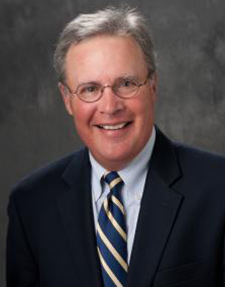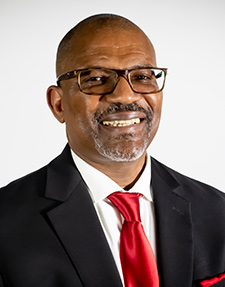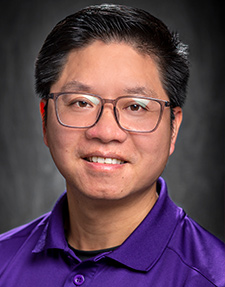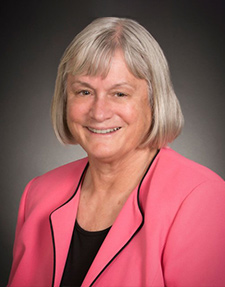SHAPE America Distinguished Lecture Series
Each year, the Distinguished Lecture Series is one of the highlights of the extensive research program at SHAPE America’s National Convention & Expo. Each of the four lectures provides the opportunity for in-depth coverage of a relevant topic, as well as formal peer recognition of outstanding scholars and leaders in the field.
View the #SHAPECleveland final program for the location of each lecture.
The Daryl Siedentop Scholar Lecture is presented in recognition of research/creative activities which enrich the depth and scope of health, leisure, sport, dance and related activities.

The Role of Mentoring in Physical Education and Physical Education-Teacher Education: A Retrospective
Wednesday, March 13 | 8-9 a.m.
Mentoring is an essential element of a successful career as a student and as a professional. It is also critical to the intergenerational success of disciplines, programs, and occupations, as current members help to socialize and support newcomers. In this way, effective mentoring is essential in the pursuit of a bright future for physical education, in both schools and higher education. This presentation will review Templin's socialization experience as a child and adolescent, an undergraduate student, a teacher, a graduate student, a professor, a professional colleague, and an administrator. It will highlight what he learned from his mentors and their impact on his own personal and professional development as a mentor. He will argue for the need to adopt humanistic, person-centered, and formative approaches to mentoring as a mechanism to support the next generation of teachers and teacher educators. Related research literature on mentorship will be infused throughout this retrospective.
A proud graduate of Indiana University (B.S. 1972, M.S, 1975 – Physical Education) and the University of Michigan (PhD Education, 1978), Dr. Templin served as a professor of Applied Exercise Science and the associate dean for faculty and undergraduate affairs in the School of Kinesiology at University of Michigan (2015-2022).. He is a professor emeritus at Purdue University, where he was a professor in the Department of Health and Kinesiology (1977-2015), its chair (1996-2006), and chair of the Department of Consumer Science (2013-2015).
Dr. Templin’s research has focused on teacher socialization within physical education that is grounded in organizational socialization theory and role theory. He is an author and editor/reviewer of numerous journal publications, book chapters and books.
Dr. Templin has served in leadership roles and has presented scholarly papers for organizations including the National Academy of Kinesiology, American Kinesiology Association, American Alliance of Health, Physical Education, Recreation, and Dance (now Society of Health and Physical Educators [SHAPE]–America), American Educational Research Association (AERA), and International Association for Physical Education in Higher Education (AIESEP). He is a former president of the National Association for Sport and Physical Education (NASPE/AAHPERD) and championed diversity initiatives during his term as president. He was president of the American Kinesiology Association in 2017 where he now serves as the association’s executive director.
Dr. Templin has received various honors, including the Weiss Lecturer for SHAPE-America, the McCloy Lecturer by the Research Consortium of the American Alliance of Health, Physical Education, Recreation, and Dance; the Curriculum and Instruction Honor Award from the Curriculum and Instruction Academy within NASPE (AAHPERD) and the Scholar Award from the Special Interest Group on Learning and Instruction in Physical Education within the American Educational Research Association. In 2021 he was honored by the American Kinesiology Association as the recipient of the Jerry R. Thomas Distinguished Leadership Award (doctoral institutions). Dr. Templin received the John R. Endwright Alumni Service Award from Indiana University’s School of Public Health.
The C. H. McCloy Memorial Lecture provides for in-depth coverage of a research topic and an opportunity to give formal peer recognition to persons who have made outstanding contributions to HPERD through their research efforts. The lecture also provides a form of continuing recognition for Charles H. McCloy, one of the great pioneer scientists and leaders of the profession. The C. H. McCloy Research Lecture was inaugurated at the 1980 National Convention and Exposition.

SHAPE Justice, America!
Wednesday, March 13 | 4:30-5:30 p.m.
The purpose of this conversation is to offer discourse centrally located in the ideology of justice. I construct this conversation from the title—SHAPE Justice, America. First, I deconstruct the shape of justice (S) in America and how we might shape our discourse, relations, and praxis in Kinesiology. Second, I explore historical structures (H) and institutions hindering or advancing justice. Third, I contend that the architecture (A) of justice calls for advocacy, agency, and action in America’s educational landscapes including Kinesiology departments and programs. Next, I explore power, privilege, and promise (P) in advancing justice. Lastly, I call for empirical evidence (E) undergirded by justice, equity, diversity, and inclusion principles. In conclusion, as Kinesiologists we are uniquely qualified and positioned to (a) advocate for; (b) use our agency as practitioners, leaders, scholars, and researchers; and (c) act strategically in promoting justice, equity, diversity, and inclusive excellence in educational landscapes. Justice - America’s promise.
A recognized leader in his field for his teaching, research and service, Hodge’s research is situated at the intersections of disability, diversity, and (social) justice with application to how teacher educators prepare teacher candidates for working with a diversity of individuals in physical activity and sport contexts. He has authored and co-authored 25 editor-reviewed short papers/chronicle entries as well as over 110 peer-reviewed journal articles, eight books, and 31 chapters in edited books. He is an Active Fellow and President of the National Academy of Kinesiology; as well as Fellow in the National Association of Kinesiology in Higher Education; and the Research Council of the Society of Health and Physical Educators (SHAPE) of America. In 2017, Hodge received the G. Lawrence Rarick Research Award from the National Consortium of Physical Education for Individuals with Disabilities. He is former Editor of Quest; and an Executive Associate Editor of Multicultural Learning and Teaching; as well, serves on the editorial board of Adapted Physical Activity Quarterly, and Quest’s Emeritus Advisory Board.
The purpose of the Raymond A. Weiss Lecture is to support a scholarly presentation by an individual in the arts and sciences who is an outstanding leader and who has made an important contribution to his or her field, and who has ties to one or more of the fields of HPERD.

Improving Children’s Readiness for Active and Healthy Living through Collaborative Scholarly Initiatives
Thursday, March 14 | 12-1 p.m.
Individuals must acquire adequate readiness for behavior changes related to active and healthy living. In this Raymond A. Weiss lecture, I share my research on K-12 students’ learning and motivation in physical education. I then present my experience in designing and testing school-based health interventions, followed by some important lessons learned ─ have big ideas and be collaborative. Through collaborations, I realize that improving readiness for change requires a holistic approach that goes beyond the boundaries of physical education and kinesiology. I conclude the presentation with the notion that work and life are intertwined in academia. My scholarship has guided the way I parent, teach, and coach children; while I also have learned immensely from the children that I have interacted with to become a better academic. Dr. Weiss’ legacy continues to inspire modern scholars in kinesiology and health fields to drive for achievement in leadership, scholarship, teaching, and service.
Dr. Chen is the Helen Bessie Silverberg Pliner Professor at LSU. His research is focused on physical education curriculum intervention; youth physical activity, fitness, and health promotion; achievement motivation in physical activity settings; behavioral and social determinants of health. Dr. Chen’s scholarship has been disseminated in many scholarly journals and books (> 80 publications) and conferences and events (>130 presentations). He has received 5 national awards and 2 internal awards (LSU Distinguished Faculty Award and LSU CHSE Distinguished Research Award) recognizing his research, teaching, and service contributions. In the past decade, Dr. Chen’s research team has received 7 extramurally and 8 internally funded grants (>$4.5 million dollars). Of these, Dr. Chen is the PI of 2 NIH (R21 and R15) grants and 2 state funded grants (LDH; LA BOR) during his tenure at LSU since 2017. Dr. Chen is a passionate educator who embraces student-centered instructional philosophy. He has regularly taught graduate and undergraduate courses in physical education, physical activity, and kinesiology. He has graduated 9 graduate students (including 3 Ph.D. students) and is currently advising 3 Ph.D. students as major professor, and has advised numerous graduate and honors students as a committee member. Dr. Chen is currently the Interim Associate Director and Chair of tenure and promotion committee in the School of Kinesiology at LSU. Outside of LSU, Dr. Chen has been a frequent ad hoc reviewer of grant applications (e.g., NIH study sections, Hong Kong Research Grants Council), manuscripts, and conference programs. He has taken on several leadership positions in the field (e.g., Chair of AERA SIG-93; Chair of SHAPE CSPAP SIG; guest editor, associate editor, editorial board members of multiple research journals).
Established in 2006, the Research Quarterly for Exercise and Sport Lecture provides for in-depth coverage of a research topic and an opportunity to give formal peer recognition to persons who have made outstanding contributions to the research represented in the sections of the RQES.

Walking for Health and Longevity: How Much and How Fast?
Friday, March 15 | 8-9 a.m.
The U.S. Physical Activity Guidelines have weekly minute guidelines for moderate- and vigorous-intensity physical activity to reduce the risks of morbidity and premature mortality. Daily steps and stepping intensity (60-100 steps/minute) associated with lowered morbidity and mortality risks vary by condition and age. In general, 4,000 to 4,500 steps/day reduces all-cause mortality risks. Cardiovascular disease and cancer risks are lowest with 8,000 steps/day, and type 2 diabetes risks are lowest with 6,000 to 8,000 steps/day.
Dr. Barbara Ainsworth is a Distinguished Professor and International Dean in the School of Kinesiology at the Shanghai University of Sport in Shanghai, China. She retired as a Regents’ Professor from the College of Health Solutions, Arizona State University, Phoenix, AZ, in 2019. Since 1993, Dr. Ainsworth has been the lead author of the Adult Compendium of Physical Activities, an exhaustive list of the energy cost of human physical activities. The third revision of the Adult Compendium is presented in 2024, with Dr. Stephen Herrmann as the lead author. Dr. Ainsworth joined AAHPERD in 1972 and became a lifetime member. She was Chair of the RQES Committee and twice delivered the McCloy Lecture. Her other accomplishments include being a Past President and an Honor Awardee of the American College of Sports Medicine (ACSM), President of the National Academy of Kinesiology, and recipient of the President’s Council of Physical Activity, Fitness, and Sports Lifetime Achievement Award. Her presentation is Walking for Health and Longevity: How Much and How Fast?